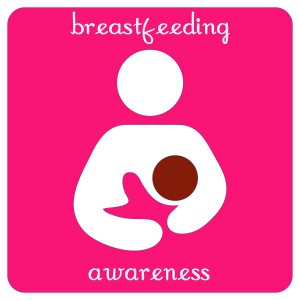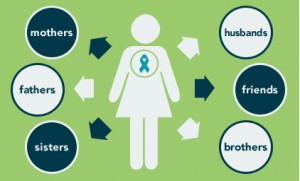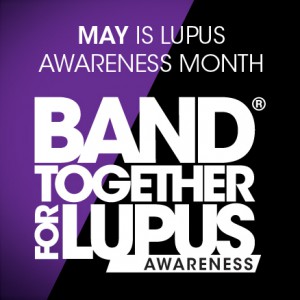 Save the receipt for that breast pump ladies because it’s tax deductible! Yes that’s right since 2009 if you set aside pre-tax dollars for healthcare spending a breast pump is a tax-deductible item. August is National Breast Feeding Awareness Month and August 1st – 7th is World Breast Feeding Week. Did you know that according to the U.S. Surgeon General, “75% of U.S. women start out breastfeeding but by 6 months less than 13% are exclusively breastfeeding their little one?” Well, don’t beat yourself up about not breastfeeding, ladies. Britain has one of the lowest rates of breastfeeding in the developed world, the majority of women stop within six weeks. In 2005 data showed less than 1% of Britain’s babies were exclusively breast fed at 6 months.
Save the receipt for that breast pump ladies because it’s tax deductible! Yes that’s right since 2009 if you set aside pre-tax dollars for healthcare spending a breast pump is a tax-deductible item. August is National Breast Feeding Awareness Month and August 1st – 7th is World Breast Feeding Week. Did you know that according to the U.S. Surgeon General, “75% of U.S. women start out breastfeeding but by 6 months less than 13% are exclusively breastfeeding their little one?” Well, don’t beat yourself up about not breastfeeding, ladies. Britain has one of the lowest rates of breastfeeding in the developed world, the majority of women stop within six weeks. In 2005 data showed less than 1% of Britain’s babies were exclusively breast fed at 6 months.
The World Health Organization (WHO) and American Academy of Pediatrics (AAP) both recommend exclusive breastfeeding for the first six months of your little one’s life. And there are numerous benefits to you and your baby if you choose to and are able to breastfeed. Read on to see some of the baby and mommy benefits of breastfeeding. First and foremost it allows a mother to bond with her baby. An added bonus is that breastmilk is absolutely natural and FREE! It requires no mixing of formula or temperature testing.
Breastfeeding after delivery stimulates the uterus to contract and become smaller. As a mom continues to breastfeed it actually leads to weight loss for her and weight gain for baby; as breast milk is like “liquid gold” – it has all the nutrients a baby needs to grow.
HARVARD here I come … Research has shown that breastfed babies have higher IQ scores, in addition to better brain and nervous system development.
Breast milk contains your baby’s first needle free immunizations because the milk contains immunoglobulins that are passed from mother to child. These immunoglobulins have been show to protect against Sudden Infant Death Syndrome (SIDS). Studies have also revealed breastfed babies have a decreased risk of developing childhood cancers, allergies, obesity, and diabetes.
The health benefits of breastfeeding aren’t just for baby. Mothers who breastfeed are at decreased risk for anemia, osteoporosis, and breast, uterine and ovarian cancer. Additionally, exclusively breastfeeding can decrease (but not eliminate) the risk of pregnancy in women who are not using contraception.
The US National Guard’s Motto is “Always Ready, Always there” .. this is a similar situation for breast milk. A mother regulates her body temperature and therefore her breast’s temperature, resulting in her milk always being at the right temperature for her little one. This eliminates the need to have, heat, and clean plastic bottles that can break down and release chemicals like bisphenol-A (BPA). Exclusively breastfeeding is also a way to go green. It decreases waste and your family’s carbon footprint. And the quality of a mother’s milk changes to meet a baby’s needs. Milk produced in the evening has a higher fat content than milk produced in the morning. The fattier evening milk actually helps keep your little one satisfied and aids with sleep. Breast milk sits better in your baby’s belly this means your little one’s digestive track can better absorb breast milk versus formula or cow’s milk. Easier digestion means breast milk leads to less diarrhea, constipation, gas and spitting up. Since breast milk helps encourage bowel movements your baby should do “number 2” two to three times a day but it wouldn’t be unusual for your baby to have a bowel movement after every feeding.
Babies can eat up to 10-12 times a day whether you are breastfeeding or using formula. Since babies feed around the clock don’t worry if you can’t breast feed for every meal. Even if you only breastfeed during the day your baby will still gain all the benefits of breastfeeding if he or she has formula at night.
Breastfeeding your baby is a very personal and individual decision. For some breastfeeding is not an option because of the inability to produce milk or the difficulty in coordinating it with their lifestyle and responsibilities e.g. multiplit births or a newborn/infant with medical needs. As statistics have shown less than 13% of U.S. women exclusively breast feed their baby after 6 months. If you would like to learn more information about how to breastfeed while you are in the hospital speak to a lactation consultant or the Labor and Delivery team and inquire about their baby friendly initiatives. Most importantly DO NOT FEEL GUILTY if you cannot or choose not to breastfeed your baby. You are still a fabulous mommy!
Dr. V’s Feeding Tips:
- Crying is a LATE hunger cue – meaning a baby is VERY hungry when he/she cries to be fed. Earlier signs of hunger include rooting, chewing on his/her hands, and opening of his/her mouth.
- Always remember to offer your second breast to your baby during feedings. He or she may not want more milk, but it’s important to try.
- NEVER heat plastic bottles in the microwave, or wash them in the dishwasher – heat can cause the plastic to release toxic chemicals.
- Make sure you and baby are always belly-to-belly for feedings.
- One must have item for breastfeeding moms is the Boppy!





